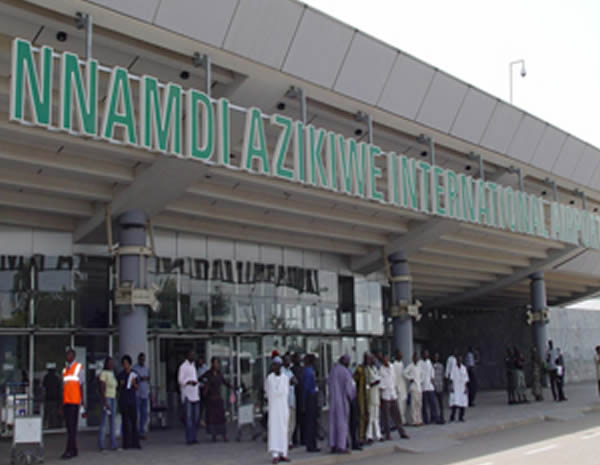The Nigerian aviation sector experienced significant disruptions on Wednesday, April 23, 2025, as workers of the Nigerian Meteorological Agency (NiMet) embarked on a nationwide strike, grounding flights and stranding passengers at major airports across the country. The industrial action stemmed from a series of grievances, primarily centered around the non-implementation of the new national minimum wage and other welfare concerns. The impact of the strike was most pronounced at the Lagos, Abuja, and Kano airports, three of the nation’s busiest aviation hubs. While a few airlines like XEJET, Aero Contractors, and Ibom Air managed to operate limited schedules in Lagos, major carriers like Air Peace suspended all flight operations nationwide, citing safety concerns due to the unavailability of crucial weather reports typically provided by NiMet.
The strike action, which commenced at 7:00 am on Wednesday, saw NiMet staff and union members demonstrating at airport premises across the country. In Abuja, the protest was particularly noticeable, with some employees reportedly spending the night at the agency’s premises to ensure the effectiveness of the shutdown. Similarly, at the Mallam Aminu Kano International Airport in Kano, the protest caused extensive delays and cancellations, leaving numerous travelers stranded. The disruption underscored the critical role NiMet plays in aviation safety, as the agency’s weather reports are essential for pilots to make informed decisions regarding flight operations. Without access to this vital information, airlines were forced to take precautionary measures to ensure the safety of passengers and crew, leading to the widespread disruption of flight schedules.
The core issues driving the NiMet workers’ strike revolved around the agency’s alleged failure to implement the N30,000 and N70,000 national minimum wage. Union representatives also highlighted other grievances, including the non-payment of staff allowances, omission of some employees from past payments, and neglect of crucial training programs. Timothy Meshelia, the Northwest Zonal Chairman of the Amalgamated Union of Public Corporations, Civil Service Technical and Recreational Employees, confirmed the disruption of flights in Kano and reiterated the workers’ demands. He emphasized the one-month ultimatum given to NiMet management to address the minimum wage issue, failing which further industrial action would be considered. This firm stance underscored the workers’ determination to secure better working conditions and fair compensation.
While the unions pressed their demands, NiMet management expressed disappointment with the strike action, claiming that efforts were already underway to address the workers’ concerns. A senior management official, speaking on condition of anonymity, highlighted the seeming contradiction between the strike and the unions’ recent commendation of the agency’s labor-friendly policies. This suggested the possibility of ulterior motives or sabotage attempts, further complicating the situation. The official reiterated management’s commitment to resolving the issues amicably and emphasized the support of the Minister of Aviation and Aerospace Development, Festus Keyamo, who scheduled a meeting with all involved parties for Thursday, April 24, 2025, to mediate the dispute.
The union representatives painted a stark picture of the working conditions at NiMet, with Uzor Oluchi, National Deputy President of the National Union of Air Transport Employees, highlighting the disparity in pay between NiMet staff and other aviation sector employees. Her claim that a Level 4 NiMet staff member earned a mere N31,000 despite the government-mandated minimum wage underscored the urgency of the situation and the workers’ frustration with what they perceived as unfair treatment. This disparity fueled the workers’ resolve to fight for their rights and equitable compensation, contributing to the intensity of the strike action. The situation presented a complex challenge, requiring a delicate balance between the needs of the workers and the smooth functioning of the aviation sector.
The NiMet strike highlights the critical intersection of labor rights and essential services. The disruption to air travel underscored the significant impact that labor disputes within critical sectors can have on the broader economy and the lives of ordinary citizens. The intervention of the Minister of Aviation and Aerospace Development, Festus Keyamo, signaled the government’s recognition of the seriousness of the situation and the need for a swift resolution. The scheduled meeting offered a glimmer of hope for a negotiated settlement that would address the workers’ concerns while ensuring the resumption of normal flight operations and minimizing further disruption to the aviation industry. The outcome of this meeting holds significant implications for the future of labor relations within the sector and the continued stability of air travel in Nigeria.


